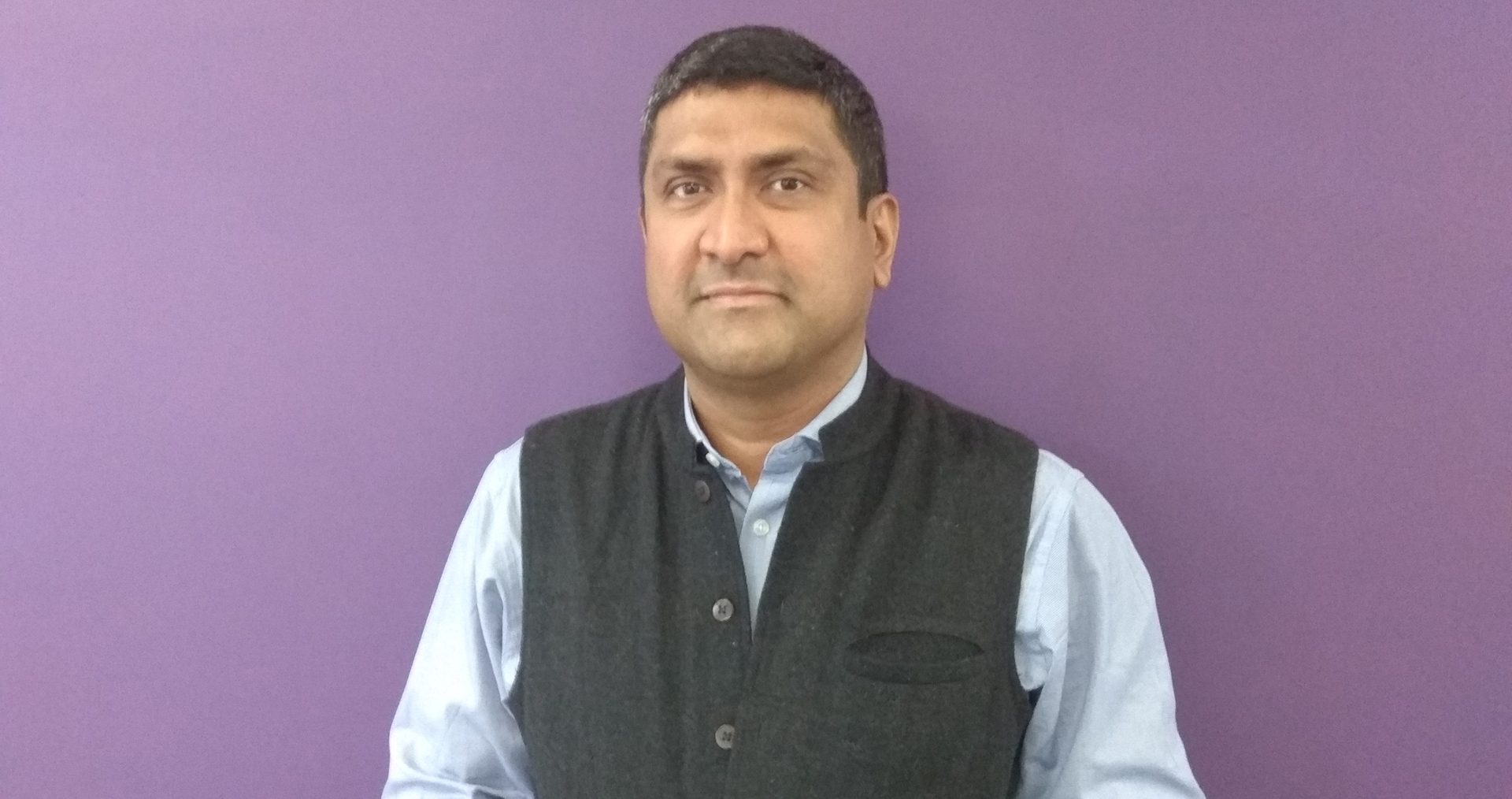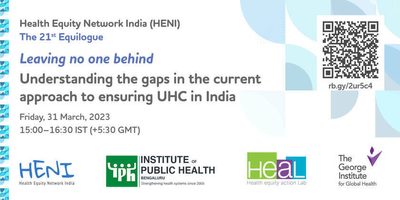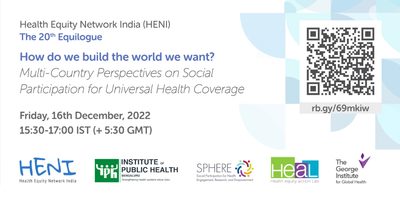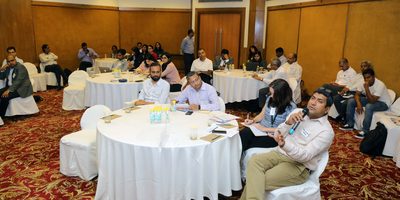
World Health Day 2018: Dr Rajmohan Panda talks about universal health coverage and health systems
Dr Rajmohan Panda, is a Senior Specialist - Health Systems Research and Process Evaluation at The George Institute for Global Health India. He has led large operational research projects in India and has considerable experience in the application of mixed methodology and epidemiological study designs for project evaluation.
A significant part of his research work has been in producing evidence for low-cost models for prevention of Non-Communicable diseases in health systems context. The larger vision of his work is to formulate evidence for policy and program reform through projects embedded within government programs.
Dr Panda has also led reviews of the Indian National Health Mission and deliberated on important discussions on Universal Health Care, MCH and Tobacco Control in national and international fora. He is a member of different networks including the NCD Alliance, the WRAI on safe motherhood, global bridges and society for research on nicotine and tobacco. Other work relevant to health systems has included providing evidence for maternal child health policies, work on the quality of care, nutrition, costing for essential health packages in different states in India and collaborating with national technical agencies on strategic purchasing for universal health care.
Q: World Health Organization and The George Institute both stress that health information is key for governments to make the right health policies. Where does India stand on health data and information compared to other countries?
"India has a long way to go and it is up to both central and state government monitoring agencies to revamp and strengthen data quality and expand the current annual surveys in getting more meaningful data.
Since India has a large private sector and close to 2/3rd of all consultations and inpatient interventions are happening in private sector, it is important to also have policies which can mandate as well as incentivise the collection of real-time data from the private sector.
Operational research can help improve current data collection and its usage in different programs and projects in public health."
Q: How important is Health systems strengthening to achieving Universal Health Coverage in India?
"A health system is the sum total of all organizations, institutions and resources whose primary purpose is to improve health, without a strong health systems platform any attempt at trying to achieve UHC would be meaningless and not sustainable.
Systems take time to be built. Real-time quality data from ongoing process evaluations are essential requisites for building robust and responsive systems."
Q: What do you think are the three main focus areas for India to strengthen health systems and ensure affordable and quality health to all by 2030?
- Technology-aided health care delivery with an emphasis on active preventive health care and life-cycle aproach to health promotion
- Ensuring timely and efficient gatekeeping through a reformed primary care system
- Regulation and governance reforms to ensure transparency and efficiency in public health care delivery and in strategic purchasing from private healthcare.
Q: Are current models of primary health care in India sustainable and effective for achieving UHC by 2030? Do you foresee any research or interventions that can improve primary health care in India?
"There are several different models of primary care in the country both in the public and private domain. In most states, the old system of primary care is “no care” or at best “bare minimum” low-quality health care with ad-hoc referrals and a focus primarily on Maternal child health. Different states have different models which provide a variety of packages, some southern states are now offering free medicines for NCDs. Others have begun using technology to aid service delivery.
Much is changing now with ambitious policies like “Ayushman Bharat” by the central government which talks of strong primary health care close to the doorsteps of the consumer with revitalised health and wellness centres as the new “primary health care”.
These policies must be implemented by state health departments which will require research and capacity building to achieve these ambitious goals. The non-profit research and development sector can help in this regard. Training and analytics will leverage knowledge and capacity for successful implementation of these policies.
Operation research and process evaluation of programs and projects are two areas that hold immense promise for the movement towards a holistic primary care system.
There is tremendous scope for innovations and demonstrating best practises models for strengthening the existing system. All this will take time, it’s important to remember that UCH is a journey and not merely a destination.
I think researchers in India will play a pivotal role in providing insights into better methods of not just delivering care but also promoting healthy lifestyles through systems engagement."
Q: Tell us about your role as a Senior Specialist on Health System Research and Process Evaluation at The George Institute?
"The health system research work presently at The George Institute India, is cross-cutting across several projects. I am trying to add more value to existing work in health systems by building a health system strengthening unit at The George Institute India with work in meso and macro health system research.
There are upcoming projects which will help in providing evidence for different dimensions of universal health coverage, strengthening models for counselling in primary care through technology aided solutions, providing technical assistance to state health departments and so on.
I am also keen on synergising our work with the global teams and talent we have across continents and building a body of work around policy research and women’s health in health system. Building coalitions and networks towards strengthening health system research work in India and globally is also a priority."
Q: The theme for World Health Day 2018 is Universal Health Coverage. Do you have a message or call to action to share with the health advocates or public health community in India?
"Universal Health Care is a term that has unified countries around the globe in a mission mode for achieving health for all.
My message for health community and advocates would be to ensure that Universal Health Coverage does not become another meaningless slogan or that coverage becomes synonymous with CARE. There are many ways of coverage including health insurance, however, it is CARE that countries should aim at and not simply coverage. CARE encompasses an acceptable good quality of health service delivery, as well as prevention and health promotion.
The George Institute is organising a stimulating debate around this topic through a policy roundtable on May 15th, 2018 in New Delhi . We hope to hear different points of view from academicians, government health officials and non-profit advocates on how UHC can be best financed."




